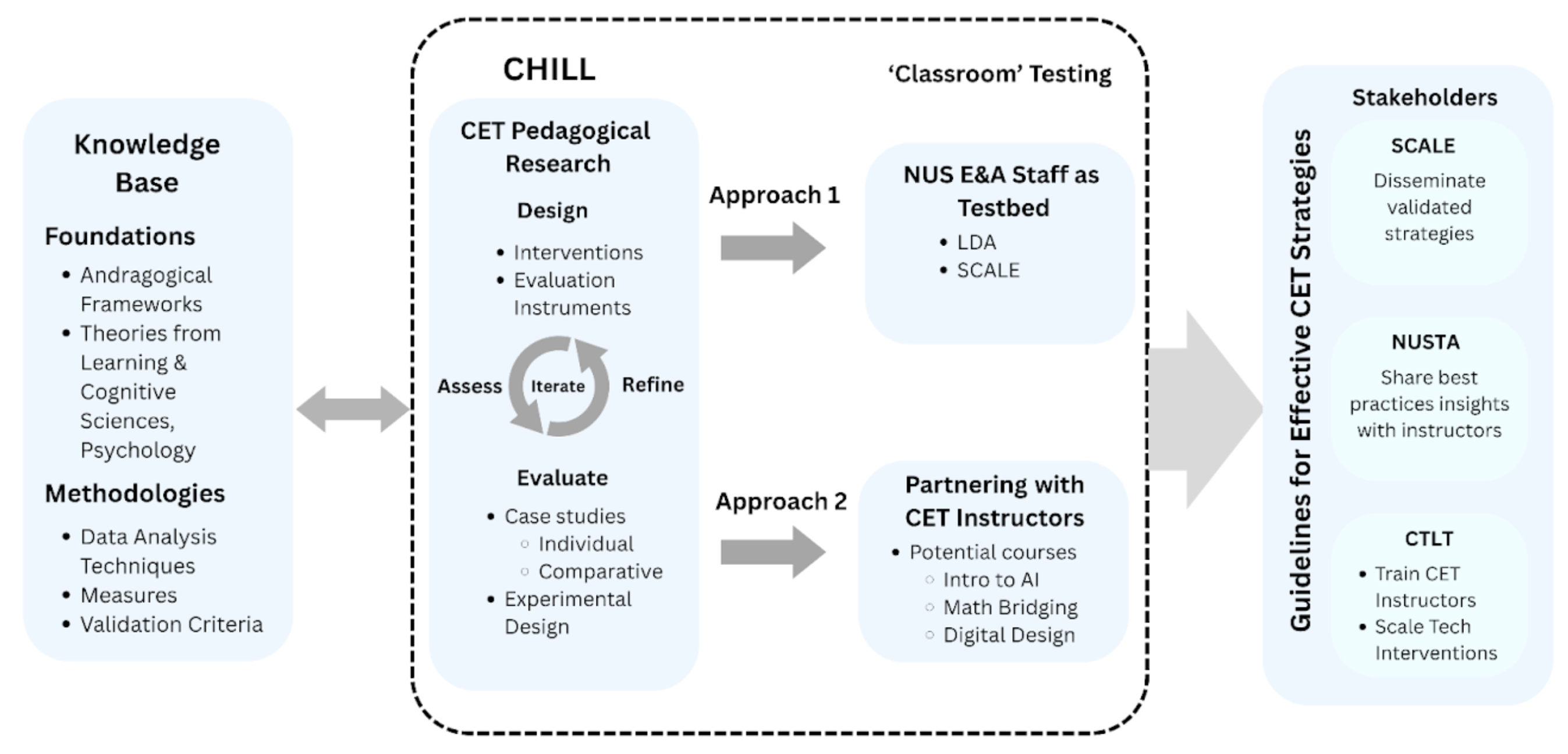About Us
The learning and working environments of today are becoming increasingly dynamic, and the requirements for learners and workers are changing ever so quickly. This transformation will impact the vast majority of adult learners, from fresh university graduates to professionals with many years of experience.
To respond to these changes, we need to equip learners with the necessary tools & training to:
- Deepen their skills to stay on top of technology and harness the technologies to create value.
- Apply knowledge in new contexts to pivot to new job roles.
This is critical to keep Singapore from falling behind in the face of this rapidly changing environment, to maintain its global competitive advantage where the cultivation of human potential is a cornerstone of its prosperity.
In response, at NUS, we have several units working together to empower lifelong learners, regardless of background or ability, to overcome learning barriers and unlock their full potential.
Plan & Vision
Our vision is to develop an NUS CET Pedagogical Research model. An approach that integrates insights gained through active collaboration with instructors and evidence-based findings from literature to support the design of interventions and evaluation instruments, ultimately equipping NUS with greater pedagogical agility.
We aim to achieve this vision through the implementation of our proposed model (see Figure [adapted from Hevner 2004] below). This model comprises four key components: Knowledge Base, CET Pedagogical Research, Classroom Testing and CET Guidelines. This model ensures both relevance and rigor. Relevance is grounded in understanding the needs of the instructors, learners, university processes, and institutional infrastructure. Rigor is ensured through the appropriate application of established frameworks and methodologies specified in the Knowledge Base.
NUS has a rich pool of E&A staff, which we plan to leverage as a testbed for our CET Pedagogical Research. While leveraging E&A staff represents one approach for Classroom Testing, another approach involves partnering with individual CET instructors. The CET Pedagogical Research comprises designing interventions and evaluation instruments customized to the specific course. These interventions will then be evaluated using individual/comparative case studies and experiments. The evaluation will help us refine the designed interventions further over subsequent iterations. Our learnings from these efforts can be further validated with other CET courses. The outcome of our CET Pedagogical Research will be translated into actionable Guidelines for stakeholders, supporting the development of effective CET strategies.

NUS CET Pedagogical Research Model






